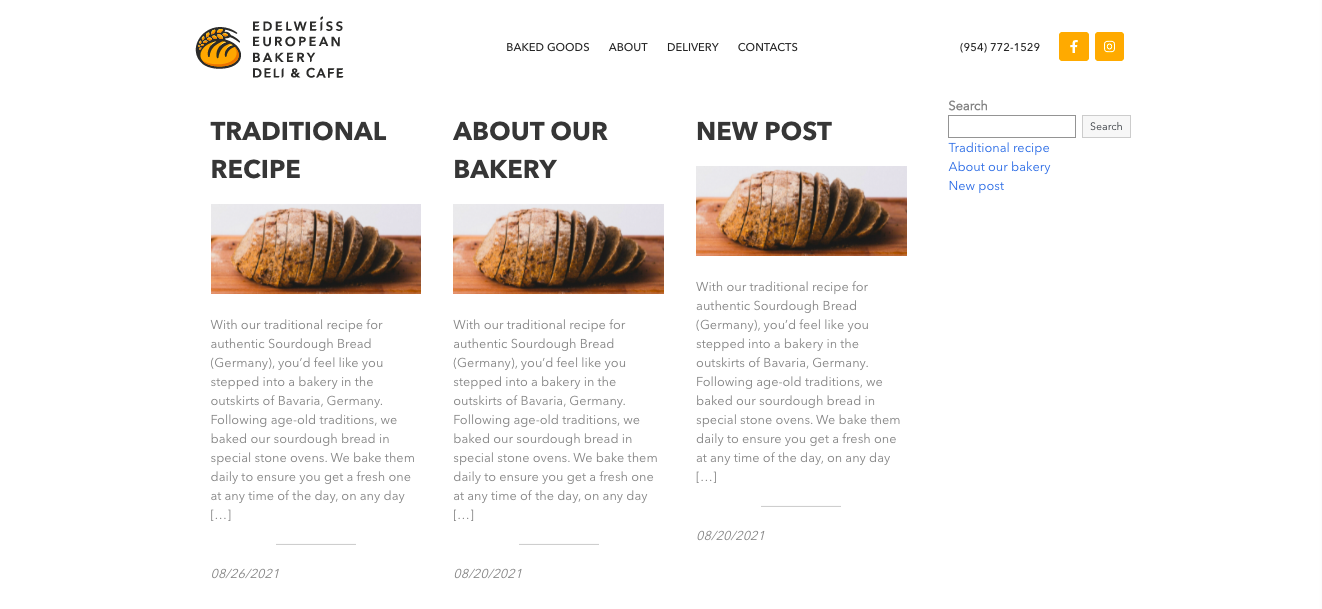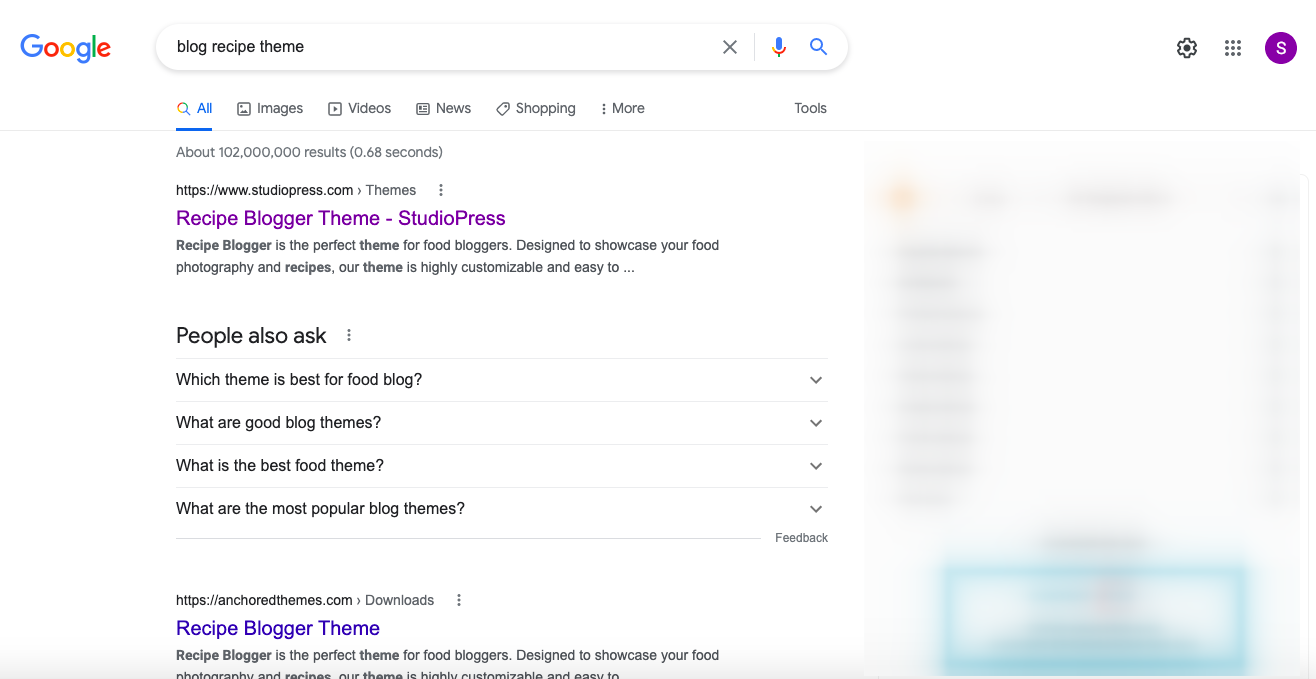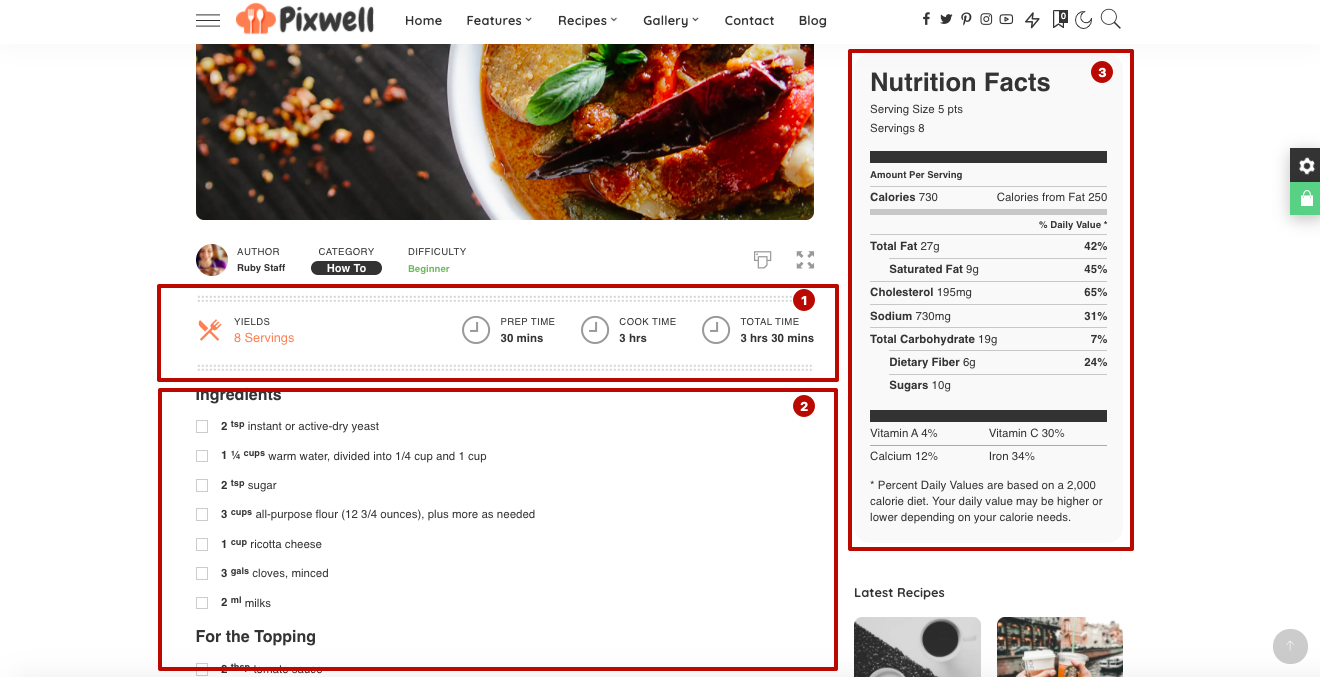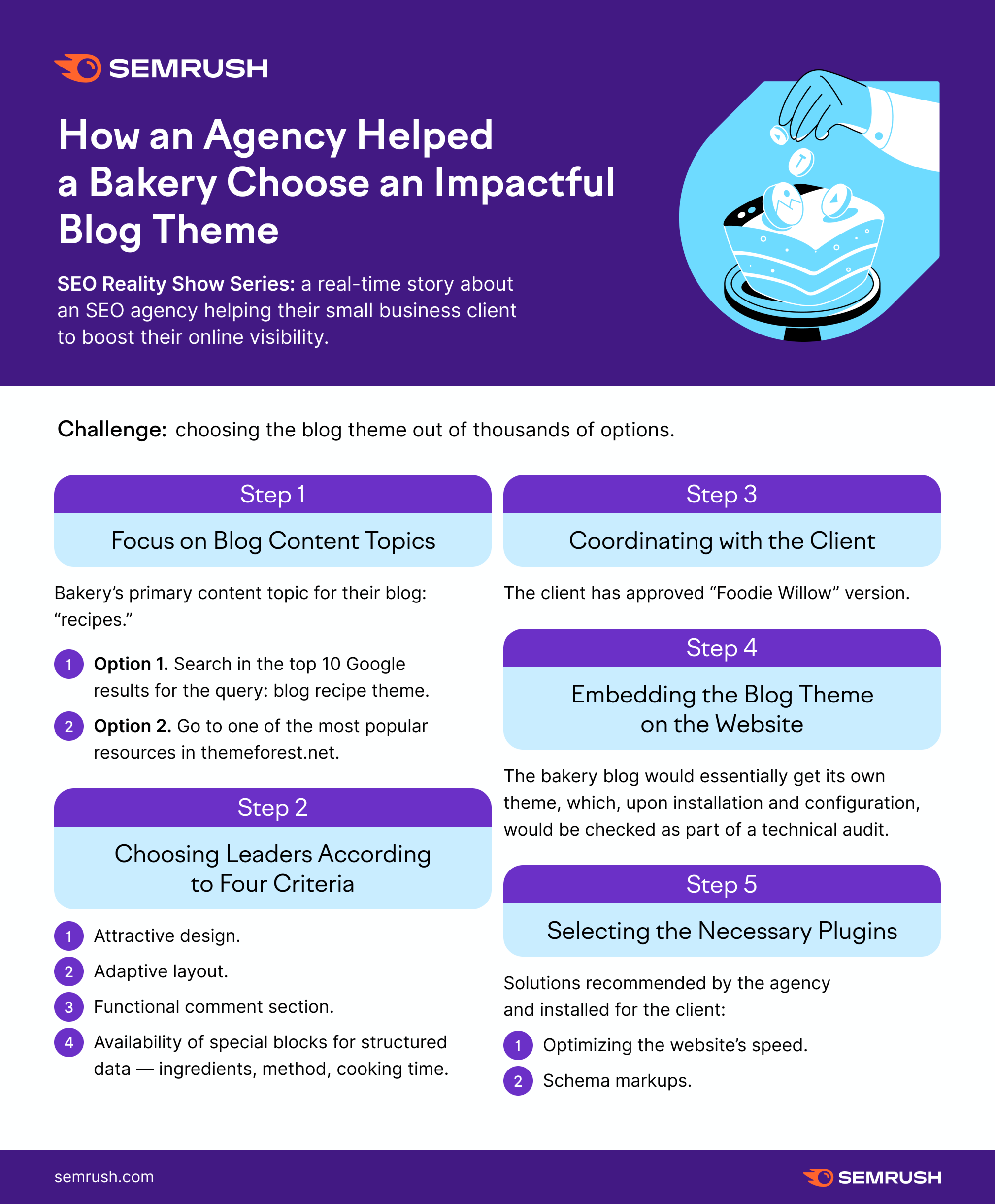So far in our SEO Reality Show, we’ve shared how an international SEO agency, Why SEO Serious, helped Edelweiss bakery determine topics for its blog and develop a content plan. In this episode, we’ll share how the agency helped Edelweiss choose a blog theme, including where to look and what to consider about your site before installing one.
A crucial and often overlooked consideration for a blog is how the content will be presented. Your blog’s theme can play an important role in either keeping your reader on the page or compelling them to hit the exit button.
Let’s take a look at how the agency helped the bakery make its blog theme as appealing as possible.
Choosing the Blog Theme
Edelweiss’ original theme was outdated and had no clear structure to the blog or the articles to make it reader-friendly. Here’s what it used to look like:

Although some businesses choose to have a customized design created for their blog theme, this can often be more costly and time-consuming. To keep expenses down and maintain progress, the agency recommended that Edelweiss select from pre-built themes for the blog redesign.
Challenge: choosing the blog theme out of thousands of options
How to Choose an Effective Theme Template
Step 1: Focusing on Blog Content Topic(s)
To help Edelweiss evaluate themes that would best suit its business and overall website, the agency focused on the bakery’s primary content topic for its blog: “recipes.” From there, the theme search was refined using the query: blog recipe theme.
Theme-finding tip: You can also go directly to one of the most popular resources in themeforest.net and choose the appropriate theme there.

Step 2: Choosing Leaders According to Four Criteria
After reviewing the top themes from the search results, the agency looked at reviews from wpbeginner.com and athemes.com to narrow options down even further. Specifically, the criteria they considered were:
- Attractive design
- Adaptive layout
- Functional comment section
- Availability of special blocks for structured data — in our case, blocks with ingredients, method, cooking time and more.
The agency also looked for other desirable elements of recipe pages, such as summaries, lists and nutritional facts. The evaluation criteria used by the agency led to two suitable options for Edelweiss’ blog:
- Pixwell — Modern Magazine theme ( preview here); and
- Lahanna — WordPress Food Blog theme ( preview here).
These options checked the boxes for visual appeal and structured information, both of which are key to keeping the user on a page. For example, the unique blocks would make it easier for readers of Edelweiss’ blog to navigate the page and quickly find the information they need.
Here’s a screenshot and example of the Pixwell theme that shows how the content blocks can work well for a recipe-themed blog like Edelweiss’:

Step 3: Coordinating with the Client
Once the team at Why SEO Serious narrowed down blog theme options, they evaluated the theme options with the Edelweiss team, discussing the pros and cons of each. The optimized content blocks and ease of navigation made the Lahanna theme the winner. After reviewing two demos of the theme for the blog ( here and here), they approved the “Foodie Willow” version.
Then, the agency could go ahead with implementing the new blog theme on the website itself.
Step 4: Embedding the Blog Theme on the Website
Pre-designed themes for blogs need to be installed alongside the site’s existing pages, e.g. the homepage, the delivery page, and the shop. This means the bakery blog would essentially get its own theme, which, upon installation and configuration, would be checked as part of a technical audit to ensure that it’s ready for indexing.
More detail on preparing a blog for indexing will be published in future episodes of SEO Reality Show, so be sure to check back.
Step 5: Selecting the Necessary Plugins
Since a theme is simply a template with stock photos, the agency wanted to ensure Edelweiss’ theme would properly integrate with the rest of the site. This is where third-party plugins (obtained from official sources) can come in handy.
In this case, solutions for the following were selected by the agency, and to be installed for the client after performing blog audit:
- Optimizing the website’s speed: You can learn more about site speed and how it is measured here.
- Schema markups: Structured data helps search robots better understand the page’s content. If there is a special markup, Google can create a rich snippet on its SERP.
To learn more about plugins and search for the ones that might be useful for your site or blog, read about our WordPress chat here.
Next Time on SEO Reality Show
On our next SEO Reality Show episode, we’ll dive into the content creation side of Edelweiss’ blog by looking at technical specifications for a copywriter. Be sure to stay tuned!
Infographic — How to Choose an Impactful Blog Theme

.svg)